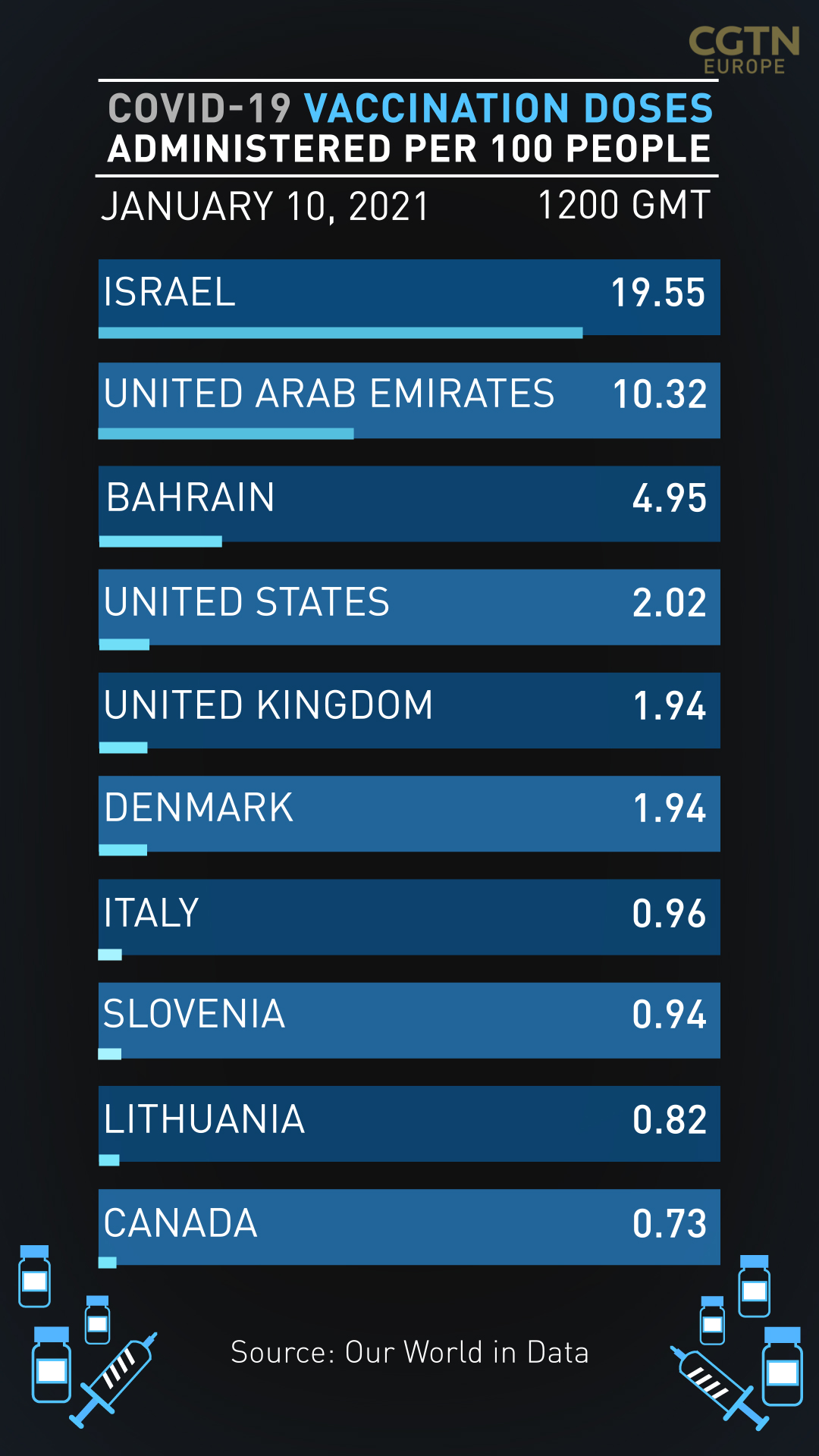
Although millions of doses of various vaccines have been produced, delivery is another challenge all together. /AFP/Ronny Hartmann
Although millions of doses of various vaccines have been produced, delivery is another challenge all together. /AFP/Ronny Hartmann
The German government is being accused of acting outside an agreement that forbids European Union member states from negotiating their own bilateral COVID-19 vaccine supply deals directly with manufacturers.
According to the European Commission President Ursula von der Leyen, all 27 nations of the bloc have made a legally binding agreement, "that there will be no parallel negotiations, no parallel contracts. We're all working together.”
However, an anonymous source at the German ministry of health told the Reuters news agency the Angela Merkel's government signed two deals to secure 50 million additional COVID-19 vaccines – 20 million from the German biopharmaceutical company CureVac and another 30 million BioNTech/Pfizer jabs.
Reuters were shown documents pertaining to the preliminary agreements which were made on August 31 and September 8 respectively, while the EU was negotiating supply deals for the 27-member bloc with the two companies.
Under both deals, deliveries to Germany would only start after the EU deals were fulfilled, according to the source.
The German government has not commented on the accusation directly but on Wednesday health minister, Jens Spahn supported the decision for the EU to order vaccines together saying, "Yes, it is right that we act European." Spahn stressed that no country and no government can defeat the virus alone, "It can only be done together."
Meanwhile BioNTech told CGTN Europe it does "not comment on potential or ongoing discussions," and CureVac refused to provide a response to our questions.
The health minister has faced criticism for failing to buy enough vaccines for the country's 83 million residents.
On Saturday, Spahn attempted to relieve supply concerns, confirming that "Germany will receive more than 130 million doses from two companies alone, BioNTech and Moderna."

The Pfizer-BioNTech jab was approved by the European Medicines Agency in late December, while a vaccine developed by the U.S. company Moderna was granted EU approval on January 6, with 50 million doses expected for Germany in 2021, according to Spahn.
Yet this would be 20 million more doses than Germany's proportional share of the 160 million ordered by the EU.
00:20

European Commission President Ursula von der Leyen recently announced a deal to reserve up to 300 million more vials of the Pfizer-BioNTech vaccine, bringing the bloc's order to 600 million, all to be divided between the 27 member nations according to population size.
Another order of 405 million doses from CureVac will be commissioned once that vaccine is approved.
Germany is also pushing to get EU approval for the Oxford University-AstraZeneca vaccine, said Spahn.
"There will be enough vaccines in Germany with BioNTech and Moderna and once there are additional approvals we can offer a vaccination to everyone by this summer," Spahn said.
Germany has already vaccinated more than half a million people.

